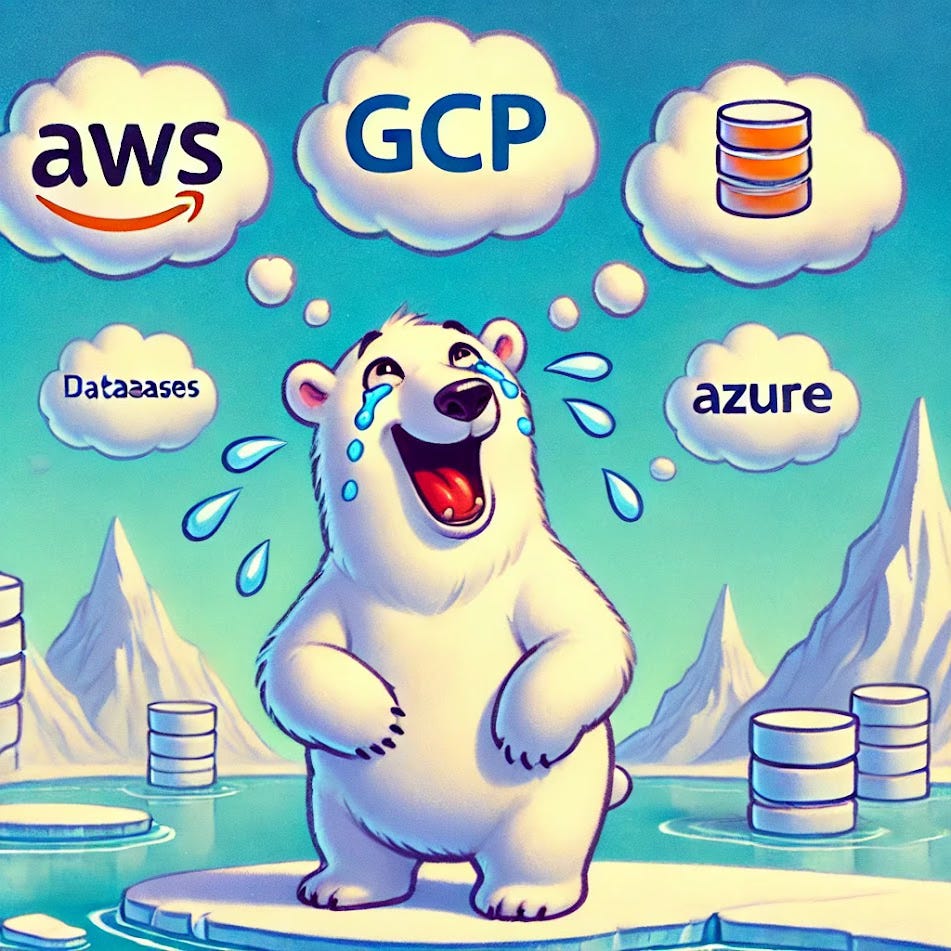Avoiding Cloud and Platform Lock-in Is a Farce
...let me explain 😆
Warning - There is no code in this post, which is unusual for my blog. This is instead a 5 minute rant of me getting on my soap box about clouds and platforms and the “dreaded” lock-in.
Additional Note - Yea I realize chatGpt misspelled databases in the image above. That was iteration #3; first 2 were even worse; I’ll take this as a W.
Every day, I see po…



